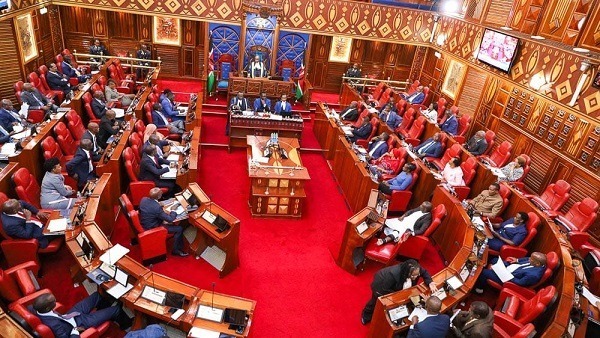

Senators now hold the fate of Kiambu county’s ambitious plan to elevate Thika Municipality to city status, potentially making it the sixth city.
This follows the formal commencement of the conferment process at the Senate, where the Devolution Committee is currently considering a resolution from the Kiambu county assembly endorsing the elevation.
Last month, Members of the County Assembly (MCAs) in Kiambu approved the proposal to confer city status on Thika, adopting a report by the assembly’s planning and urbanisation committee.
On Tuesday, Senate Speaker Amason Kingi referred the resolution to the Senate’s Devolution Committee, chaired by Wajir Senator Mohamed Abass, and directed the team to expedite its deliberations.
“I direct that the committee expedites consideration of this matter and table the report for the Senate’s consideration,” he said.
The Senate committee is now under the spotlight as it reviews the proposal.
Should the committee support the resolution and the Senate adopts the report, the clerk of the Senate will forward it to President William Ruto, who has the authority to confer city status by issuing a charter.
Kenya currently has five cities: Nairobi, Mombasa, Kisumu, Nakuru and the most recent one, Eldoret.
Kiambu Governor Kimani Wamatangi, who led a delegation of county executive and assembly members to present the resolution, expressed optimism that the Senate would approve the request.
In February, Governor Wamatangi submitted a report to the county assembly from an ad hoc committee he appointed to guide the city status bid.
The committee, chaired by former nominated senator Sylvia Kasanga, enjoyed overwhelming support from the public and key partners.
The assembly's planning committee also conducted separate public participation forums before preparing the final report, which was endorsed by MCAs.
The report showed that Thika meets the legal requirement under the Urban Areas and Cities Act, with a population exceeding 250,000.
The 2019 census recorded 279,429 residents in the municipality, a number projected to grow to more than 800,000 by 2039.
In addition to population, the report highlighted that Thika has an Integrated Strategic Urban Development Plan, approved by the executive and assembly, aligning with national and global urban development frameworks.
Thika also demonstrates strong financial health, with revenue generated from land rates, business permits, environmental fees, parking charges and other streams.
The municipality has essential infrastructure including roads, reliable water supply, electricity, healthcare and education facilities, public offices, and a functioning transport system.
Governor Wamatangi said the elevation to city status would boost Thika’s international visibility and unlock access to development grants and funding exceeding Sh5 billion.
These funds would support infrastructure, social services, and economic development programmes.
He said national and county governments have already committed more than Sh10 billion to ongoing and planned investments across infrastructure, water, health, education, trade and sports sectors to prepare Thika for cityhood.
The county government has already launched the rehabilitation of key roads, drainage systems, and street lighting within Thika’s Central Business District.
Upgrades are ongoing at the town’s entrance, along Gatitu Road (Garissa Junction), including re-carpeting, installation of solar-powered streetlights and improved drainage.
The Department of Roads and Transport is also rehabilitating other critical roads such as Kisii Road and the Thika Town Bus Park. Development projects are underway across all five wards in the municipality.
Additionally, Governor Wamatangi said 324 acres in the Gatuntaga have been gazetted as an Export Processing Zone, a move expected to open up the eastern part of Thika for industrial and economic expansion.
He described Thika as a strategic urban centre and a fast-growing town with immense potential. Its location positions it as the gateway to Mt Kenya, parts of Eastern and Northeastern Kenya and even nations in the Horn of Africa.
Strategically situated along the Trans-Africa Highway, Thika connects the southern and northern regions. As a city, it could emerge as a central trade and logistics hub for East Africa.
The town is already well-served by an intermodal transport network—featuring the Thika Superhighway, a railway line, and a highway to northern Kenya.
It also lies just 40 kilometres from Jomo Kenyatta International Airport, the largest aviation hub in the Great Lakes region.
INSTANT ANALYSIS
Thika, once a thriving hub for agro-processing and manufacturing, has long been seen as a key driver of economic growth within the Mt. Kenya region. The push for city status is expected to attract more investment, boost infrastructure development, and expand job opportunities. If approved, Thika will become the fifth city in Kenya, joining Nairobi, Mombasa, Kisumu, and Nakuru.

















